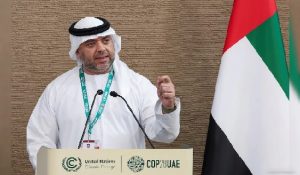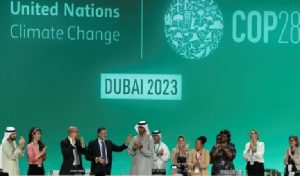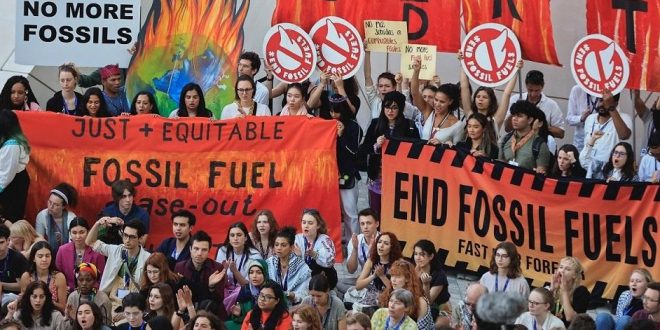14-12-2023
DUBAI: The COP28 climate talks went into overtime on Tuesday as countries engaged in shuttle diplomacy to bridge deep international divisions over how to deal with fossil fuels in the summit’s final text.
 Where the conference lands on the issue will send a powerful message to global investors and markets about the ambition of governments around the world to end the use of oil, or preserve a future place for it.
Where the conference lands on the issue will send a powerful message to global investors and markets about the ambition of governments around the world to end the use of oil, or preserve a future place for it.
Many nations had criticized a deal draft released on Monday for failing to call for a “phase-out” of fossil fuels, which scientists say are by far the biggest source of the greenhouse gas emissions driving global warming.
More than 100 countries ranging from the United States and the EU to tiny island nations had pushed for the language, but came up against strong resistance from members of the OPEC oil producer group and its allies.
The United Arab Emirates’ COP28 Director General Majid Al Suwaidi said the aim of the Monday text was to draw negotiators from the nearly 200 countries at the Dubai summit to reveal their demands and move the discussion forward.
“By releasing our first draft of the text, we got parties to come to us quickly with those red lines,” he told reporters.
Al Suwaidi said the COP28 presidency was aiming for a “historic” result that included mentioning fossil fuels but that it was up to countries to agree.
 Deals at U.N. climate summits must be passed by consensus, at which point individual countries are responsible for delivering the deal through national policies and investments.
Deals at U.N. climate summits must be passed by consensus, at which point individual countries are responsible for delivering the deal through national policies and investments.
Germany’s Climate Envoy, Jennifer Morgan, said the talks had now entered a “critical, critical phase”.
“There is a lot of shuttle diplomacy going on,” she said on X, formerly known as twitter, referring to fast-paced meetings between countries to hunt for compromise.
U.S. Special Climate Envoy John Kerry popped out of one meeting with representatives from several other delegations late on Tuesday and said he believed the fossil fuel language in the COP28 deal text was getting stronger.
“I think there’s progress and moving in the right direction and you know, we’re going to keep working through the night,” he told reporters.
A new draft text for a final deal was expected in the early hours of Wednesday, with a potential plenary meeting to finalize a deal later in the day.
The draft released on Monday had suggested eight options countries “could” take to cut emissions.
One was “reducing both consumption and production of fossil fuels, in a just, orderly and equitable manner so as to achieve net zero by, before, or around 2050”. (Int’l News Desk)
 Pressmediaofindia
Pressmediaofindia




